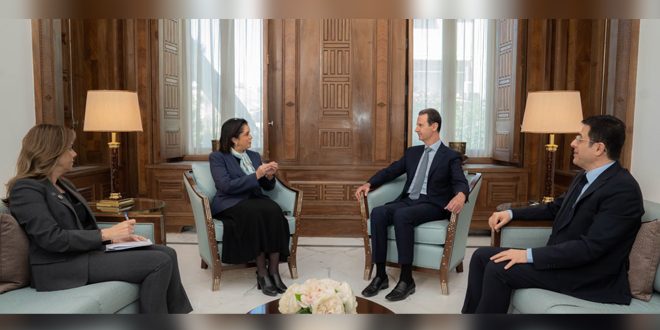On Sunday, President Bashar al-Assad met with Dr. Hanan Balkhi, the World Health Organization Regional Director for the Eastern Mediterranean, discussing the enhancement of WHO’s activities in Syria.
The discussions focused on elevating WHO’s involvement in Syria to strategic levels through a precise evaluation of the health sector’s current state and requirements. President al-Assad emphasized that effective cooperation with WHO is crucial, especially in the current context, and should aim not only to address the shortages of medical supplies and equipment but also to develop an organizational roadmap. This roadmap would begin with policy formulation and extend to structured work programs that support health professionals with the latest medical knowledge and expertise.
Regime Trying to Open Communication Channels with Germany: Who’s Behind the Move?
Dr. Balkhi outlined WHO’s initiatives aimed at building capabilities within the Middle East, reaffirming the organization’s commitment to ongoing support, risk reduction, and health system enhancement in the region through increased coordination and resource mobilization.
The visit began with a meeting between Foreign and Expatriates Minister Fayssal Mikdad and WHO’s Regional Director, where Minister Mekdad highlighted the critical need to strengthen collaboration between Syria and WHO, especially given the impact of unilateral Western sanctions. These sanctions have exacerbated challenges in the health sector, including shortages of medicine and medical equipment.
Minister Mikdad also urged WHO to continue its efforts to depoliticize health sector initiatives, emphasizing the sector’s significance in humanitarian efforts. Dr. Balkhi commended the Syrian government’s cooperation with WHO and expressed a strong desire to further this partnership to effectively address health challenges faced by the Syrian people.
This article was translated and edited by The Syrian Observer. The Syrian Observer has not verified the content of this story. Responsibility for the information and views set out in this article lies entirely with the author.


